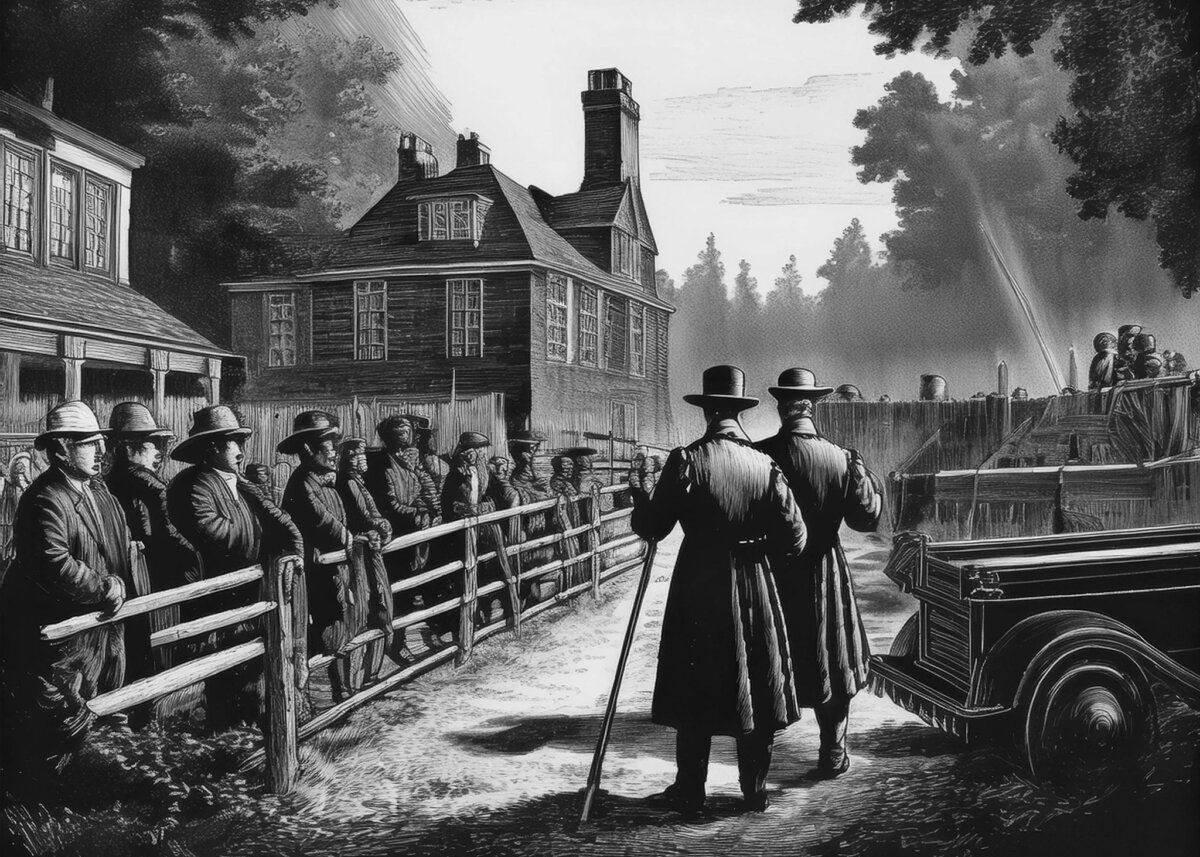Introduction
Buyers and investors must consider that one of the most critical aspects when purchasing real estate is the chain of title. The term refers to the historical record of property ownership, documenting all past transfers from one owner to another. A clear and unbroken chain of title is essential for establishing legal Ownership, preventing disputes, and securing financing. Understanding the importance of a property’s history and its role in real estate transactions can save buyers from costly legal complications.
What Is a Chain of Title?
The chain of title is essentially the lineage of Ownership for a piece of real estate. It is a chronological list of all recorded property transfers, beginning with its original owner and tracing through all subsequent owners up to the present day. The record is maintained in public land records and accessed through local government offices or online databases.
Each transaction in the chain of title is documented through legal instruments, such as:
- Deeds – Documents that transfer Ownership from one party to another.
- Mortgages and Liens – Claims or encumbrances that might affect Ownership.
- Easements and Restrictions – Limitations on how the property can be used.
- Probate Records – Transfers of Ownership due to inheritance.
If any gaps, errors, or irregularities are found in the chain, they can lead to significant legal issues.
Why Is the Chain of Title Important?
1. Establishing Ownership
A transparent chain of title confirms that the seller has the legal right to transfer the property. Without an unbroken record, multiple parties could claim Ownership, leading to disputes or potential fraud.
2. Preventing Legal Disputes
Any break in the chain, such as missing or fraudulent transfers, can result in legal battles over ownership rights. Ensuring a clean title history prevents future claims from previous owners or heirs who may assert their rights to the property.
3. Title Insurance Protection
Lenders and buyers typically require title insurance to protect against unforeseen title defects. If a title issue arises after a purchase, title insurance covers financial losses and legal fees for defending ownership rights.
4. Ensuring Marketability
Properties with a transparent chain of title are easier to sell and refinance. A property with title defects may be difficult to transfer because lenders and potential buyers may be wary of unresolved issues.
5. Avoiding Financial Pitfalls
Title defects can lead to costly legal battles, property loss, or financial setbacks. Conducting thorough due diligence on the chain of title ensures that buyers are making a sound investment.
Standard Chain of Title Issues
Several issues can arise within the chain of title that could complicate a real estate transaction. Some of the most common include:
1. Missing Links in the Chain
Suppose a property transfer was not correctly recorded. In that case, gaps may exist in the title history, leading to uncertainty about actual Ownership.
2. Forged or Fraudulent Documents
In some cases, fraudulent deeds or forged signatures may appear in the historical record. This can result in legal disputes and claims against the property.
3. Undisclosed Liens or Encumbrances
If a previous owner took out a loan using the property as collateral and was never adequately satisfied, the debt could still be attached to the property.
4. Errors in Public Records
Clerical errors, incorrect spellings, or misfiled documents can create confusion about rightful Ownership.
5. Boundary Disputes
Discrepancies in property surveys, legal descriptions, or encroachments by neighbors can lead to conflicts regarding property lines.
How to Verify a Chain of Title
To ensure a property has a transparent chain of title, buyers and lenders typically follow these steps:
1. Title Search
A title company or attorney conducts a title search to examine historical records and ensure no title defects. This includes reviewing deeds, tax records, court proceedings, and liens.
2. Title Abstract
A title abstract is a detailed summary of the chain of title, listing all transactions, encumbrances, and potential issues that may affect Ownership.
3. Title Opinion
Attorneys may review the title abstract to issue a legal opinion confirming the property’s ownership status.
4. Obtaining Title Insurance
Once the title search is complete, buyers typically purchase title insurance to protect against undiscovered defects that may arise after closing.
How to Resolve Title Issues
If a title search reveals issues, they must be resolved before closing. Common solutions include:
1. Filing a Quiet Title Action
This legal process clarifies and resolves disputes by asking a court to declare the rightful owner.
2. Correcting Public Records
A title company or legal professional can work with local recording offices to amend records if clerical errors are found.
3. Paying Off Outstanding Liens
If old debts or liens exist, they must be satisfied before Ownership can be transferred.
4. Obtaining a New Deed
A new deed may need to be created and recorded correctly in fraudulent or missing deeds.
Conclusion
Understanding the chain of title is essential for anyone involved in real estate transactions. A clear and well-documented title history ensures that Ownership is legitimate, reduces legal risks, and enhances a property’s Marketability. By conducting thorough title searches and addressing potential issues early, buyers can safeguard their investments and avoid costly complications in the future. Whether purchasing a home or investing in real estate, ensuring a transparent chain of title is a critical step in securing your financial interests.
Learn more about our comprehensive title insurance services here.
Thank you for reading! If you enjoyed this article and want to explore more content on similar topics, check out our other blogs at Sonic Loans, Sonic Realty, and Sonic Title. We have a wealth of information designed to help you navigate the world of real estate and finance. Happy reading!
Understanding Chain of Title: Why History Matters in Real Estate
Title Insurance vs. Home Insurance: Understanding the Crucial Differences
The Evolution of Title Insurance: From 1868 to Today
How Technology Is Revolutionizing the Title Insurance Industry
Understanding Closing Costs: What First-Time Buyers Need to Know
What Exactly Is Title Insurance? A First-Time Buyer’s Complete Guide
What are the top home title questions in 2025
The 7 Most Common Title Issues That Could Derail Your Home Purchase
Understanding Zoning: The Framework That Shapes Urban Spaces










